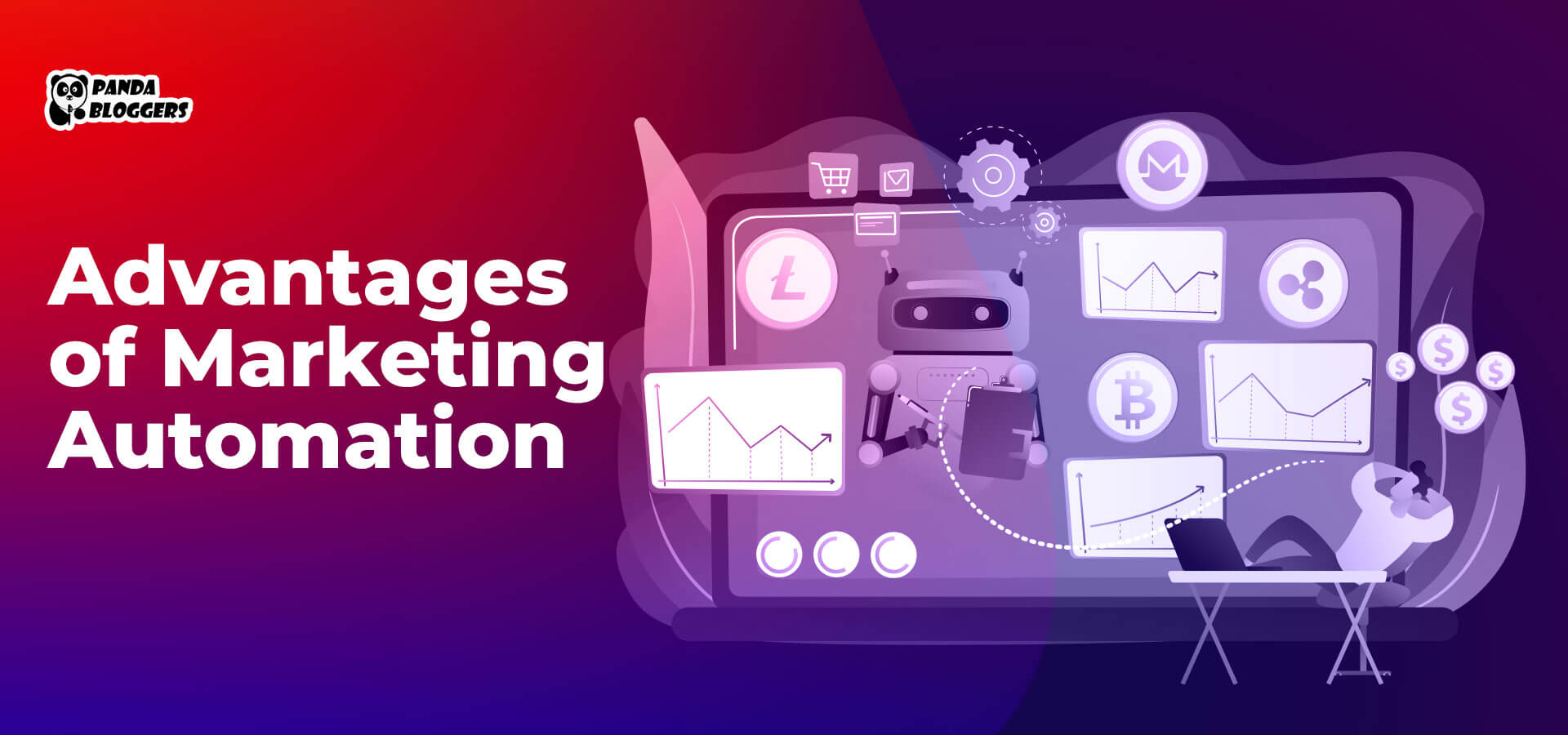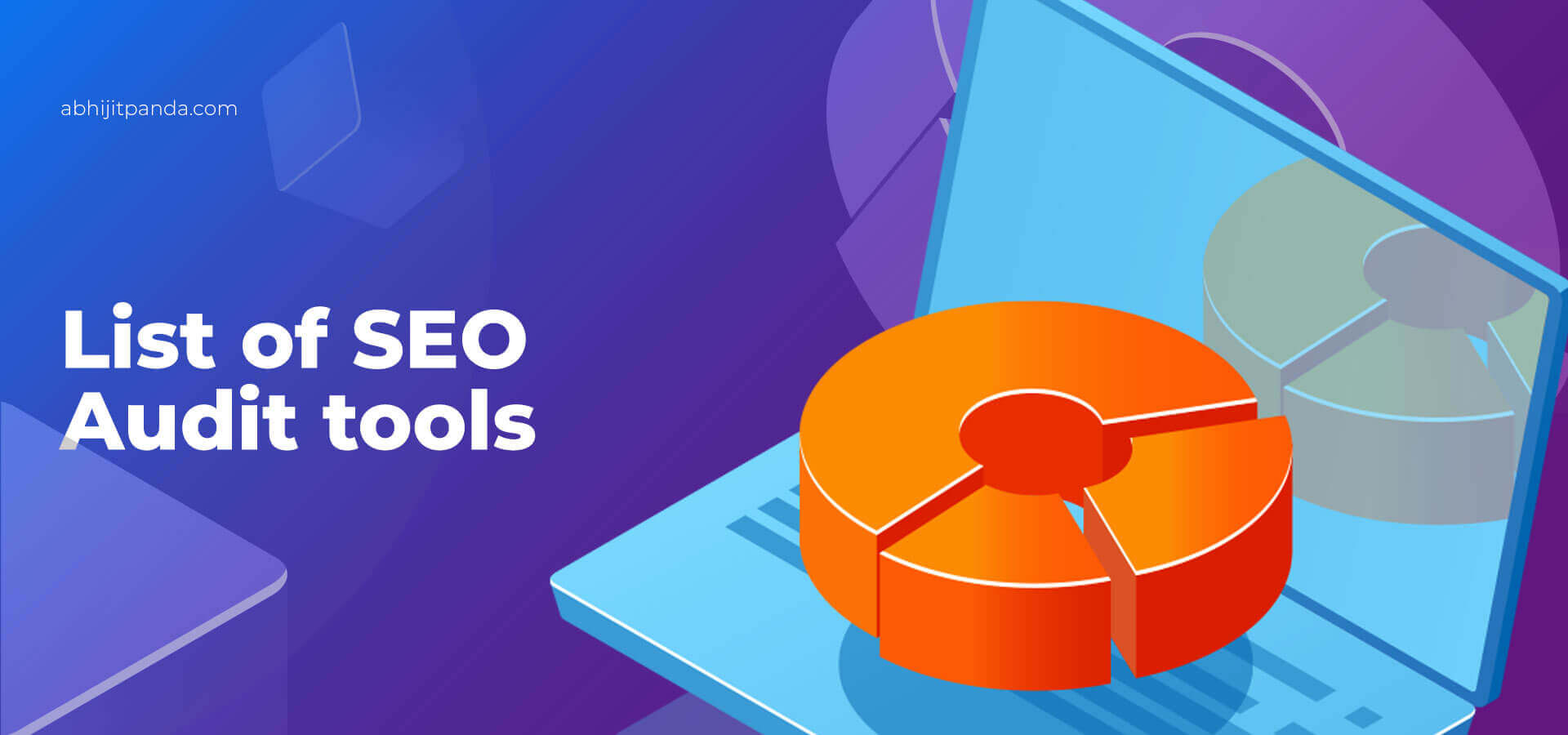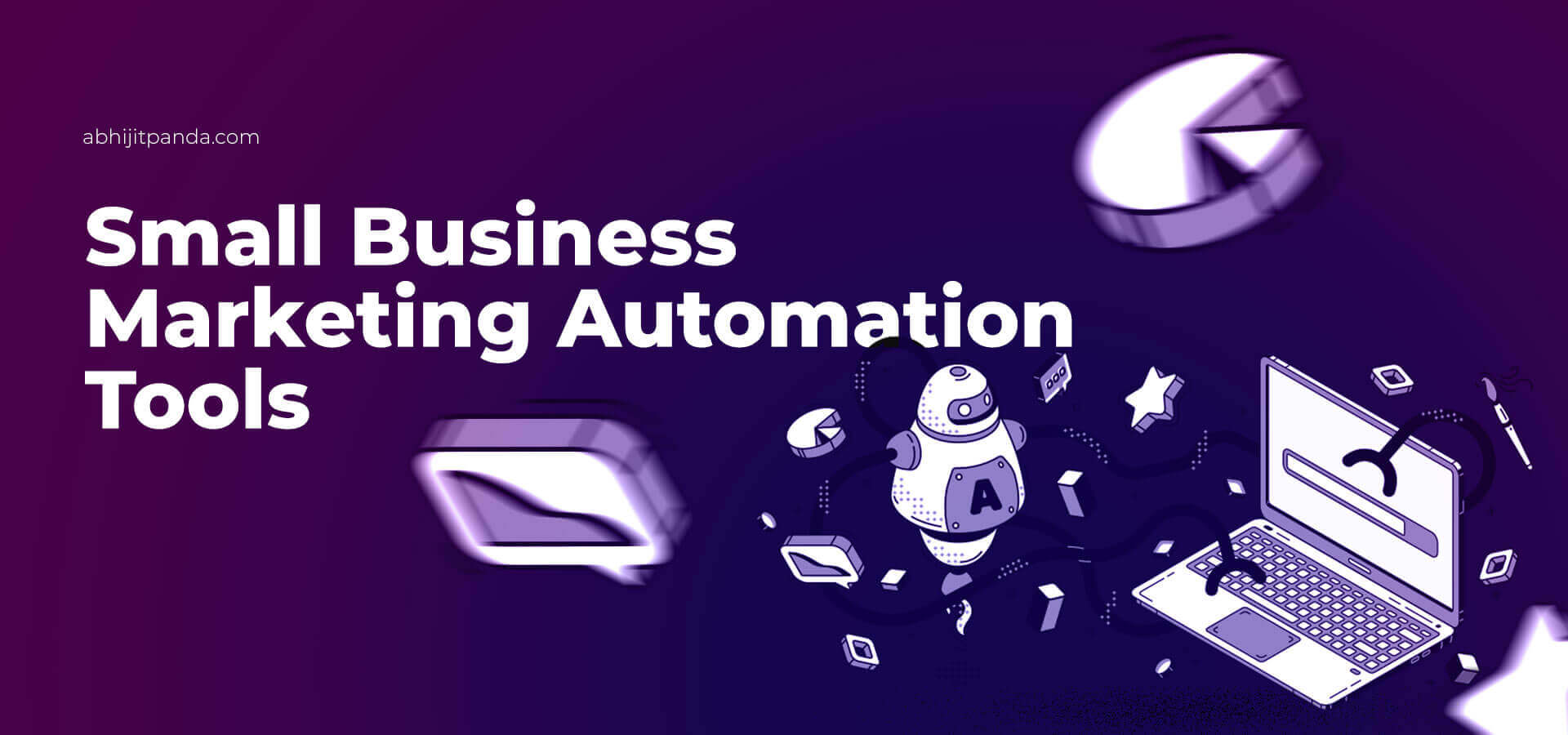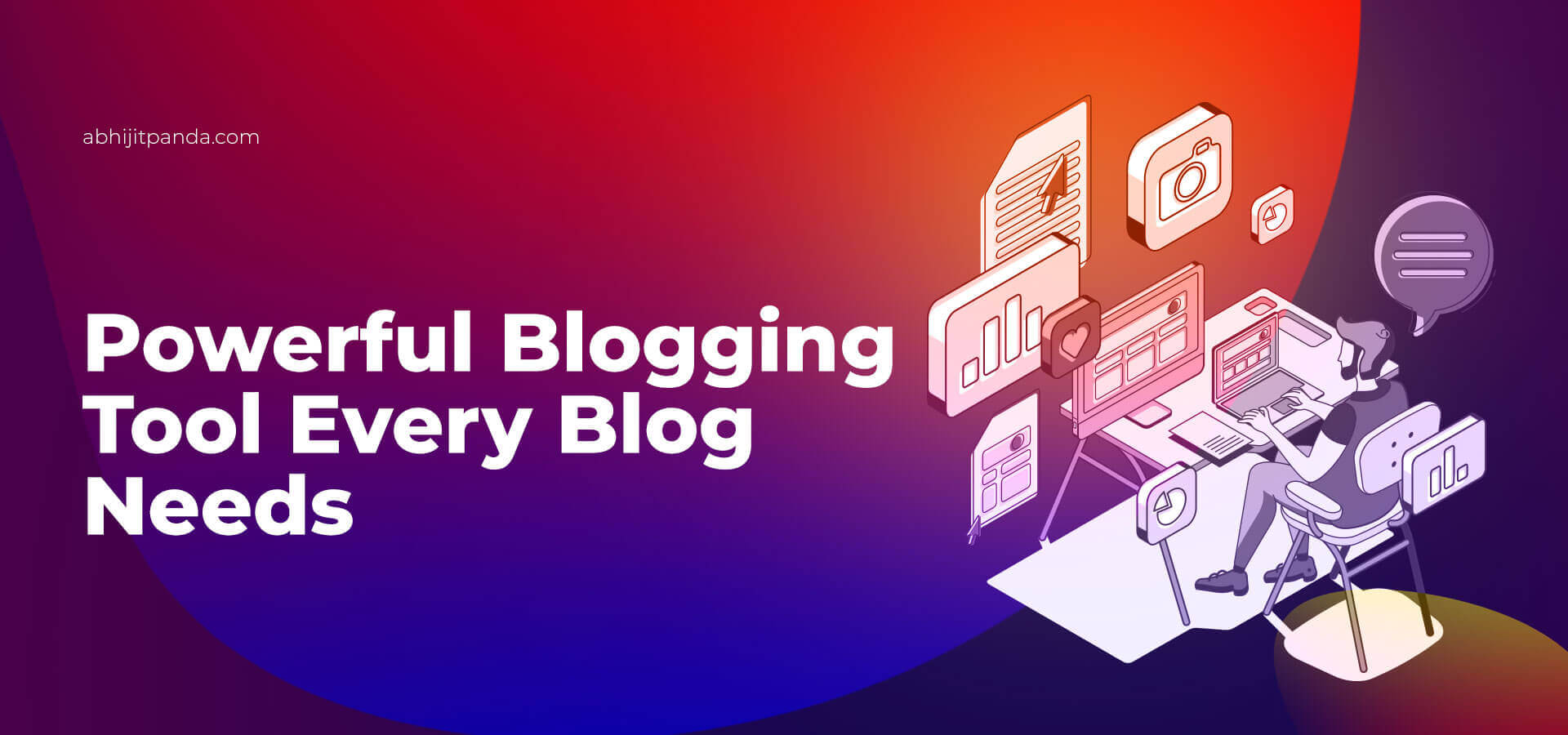 Advantages of Marketing Automation
Advantages of Marketing Automation
Modern companies and startups connect and engage with customers by running multichannel or omnichannel marketing channels. They interact with customers using both conventional and digital marketing channels. Likewise, they spread marketing messages through popular channels like social media, websites, blogs, emails, direct mail, digital ads, and print ads.
They need skilled professionals to plan, monitor, and manage channel-specific marketing tasks. Marketing automation helps enterprises streamline marketing processes and manage multifunctional marketing campaigns through the automation of routine and repetitive marketing tasks.
Businesses implement marketing automation platforms that automate monotonous marketing activities like sending emails, posting content on social media, and tracking PPC ad performance. In addition to performing marketing activities in a faster and more efficient way, marketing automation tools personalize customer experience by leveraging real-time data collected from diverse sources.
According to Statista,
“Between 2021 and 2023, the global marketing automation industry revenue grew by an estimated 22 percent to 5.86 billion U.S. dollars. The market expects that annual figure to more than double by 2030 when it will surpass 13.7 billion dollars, according to forecasts.”
The statistics suggest a surge in the number of companies and startups gaining a competitive advantage by automating repetitive marketing tasks. If your organization is still carrying out marketing activities manually, it is time for you to consider some of the key benefits or advantages of marketing automation.
9 Major Advantages of Marketing Automation
Align Sales and Marketing Activities
Sales and marketing alignment helps your business boost close rates, customer retention rates, and revenue growth rates simultaneously. Marketing automation software enables your marketing and sales team to access unified customer data.
Hence, it becomes easier for them to target potential customers efficiently across their buying journeys. In addition, the tools provided by the platform help them perform routine activities more efficiently without human intervention.
Automate Multiple Marketing Activities
Many entrepreneurs believe that marketing automation tools are effective only in automating email marketing campaigns. However, modern marketing platforms help companies automate multifunctional marketing activities.
For instance, your team can use the software to score leads, manage email lists, and post content on social networks. Likewise, they can perform A/B testing to choose the best version of an email or ad. You can implement the right marketing automation platform to perform a variety of monotonous marketing activities automatically.
Identify High-Value Leads
In addition to capturing leads across channels, marketing automation platforms gather demographic information of potential customers. They help your team evaluate leads based on their buying intent and real-time profile information. Also, leading platforms come with built-in lead-scoring tools.
These features help your teams detect marketing-qualified and sales-qualified leads accurately. Also, they make it easier for your team to nurture high-value leads by delivering personalized content and messages. In addition, the software sends automated notifications to your team when marketing-qualified leads become sales-qualified leads.
Nurture Leads across Marketing Channels
In the age of omnichannel marketing, potential customers often drop out of the sales funnel due to a lack of engagement. Marketing automation platforms help your sales and marketing teams access the behavioral data of each customer across channels based on activities like website visits, email clicks, and social media interactions.
The unified customer behavioral data helps your teams identify, organize, engage, and nurture leads, regardless of their preferred channel. Your teams can use the marketing automation tool to deliver personalized messages and relevant content to the prospect according to his current position in the buyer’s journey.
Deliver Specific and Personalized Content
Most organizations still use buyer persona as the primary tool for choosing and delivering marketing content to potential customers. AI-driven marketing platforms enable your teams to deliver targeted content to prospects based on their real-time profile information.
Your team can use specialized tools to divide potential customers into relevant segments. Furthermore, they can use the platform to engage them by suggesting specific products, recommending relevant content, and making personalized offers.
Adopt the Lead Attribution Model
When your business runs multichannel marketing campaigns, your teams find it challenging to evaluate and prioritize customer acquisition channels. Marketing automation platforms help them segment potential customers based on how they know about and interact with your brand.
Your team can leverage real-time information to decide if potential customers know about your brand by responding to your content or ads. Likewise, they can identify the external links potential customer clicks on to gather information about your product, service, or brand.
Leverage Marketing Analytics
New-age marketing automation solutions feature advanced data analytics solutions. Marketing analytics tools collect and analyze campaign data regularly and automatically. They further gain and share a variety of actionable insights by analyzing the real-time campaign data.
These insights help your team measure customer engagement based on behavioral data. In addition, your team can use these data-driven insights to boost campaign performance by understanding what is working and what is not.
Repeat and Scale the Marketing Process
While configuring the market automation software, you can automate routine marketing activities like lead scoring, email delivery, and customer journey personalization. The software will perform these marketing tasks efficiently and accurately as the number of leads increases.
At the same time, you can scale the cloud-based marketing automation platforms on demand without putting in extra time and effort. Your team will continue to run marketing campaigns and gain data-driven insights as they include more marketing channels and plan more marketing programs.
Increase Marketing ROI
Automation helps you increase the marketing ROI in multiple ways. Firstly, the automation of repetitive marketing activities helps you boost process efficiency and reduce operating costs. Secondly, marketing automation platforms make it easier for your team to increase conversion rates by making data-driven decisions.
Thirdly, automation helps your organization boost customer engagement by personalizing omnichannel marketing strategies. Fourthly, you can track and evaluate the performance of each marketing campaign accurately by generating automated reports based on real-time data. Hence, you can boost campaign performances by understanding what is not working.
Conclusion
The steady growth of the global marketing automation market suggests enterprises have been switching from manual marketing to automated marketing. In addition to reducing human resource costs, marketing automation helps them identify, nurture, and generate leads across channels.
New-age marketing automation platforms use data analytics to share actionable insights that help your company boost marketing campaign performance. However, you can leverage the advantages of marketing automation only by choosing and implementing the best-suited marketing automation platform.








Leave a Reply